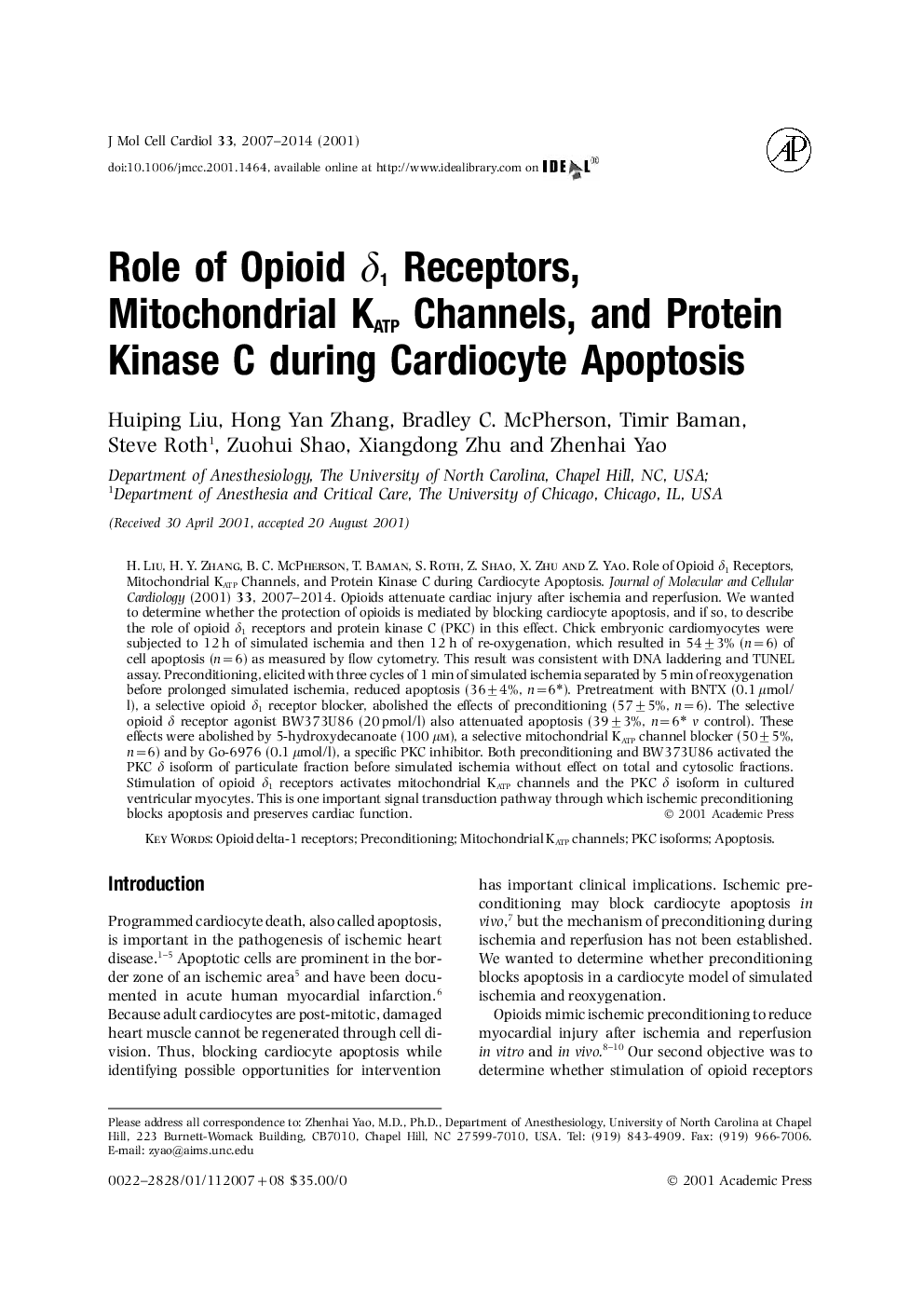| Article ID | Journal | Published Year | Pages | File Type |
|---|---|---|---|---|
| 2192637 | Journal of Molecular and Cellular Cardiology | 2014 | 8 Pages |
Opioids attenuate cardiac injury after ischemia and reperfusion. We wanted to determine whether the protection of opioids is mediated by blocking cardiocyte apoptosis, and if so, to describe the role of opioidδ1 receptors and protein kinase C (PKC) in this effect. Chick embryonic cardiomyocytes were subjected to 12 h of simulated ischemia and then 12 h of re-oxygenation, which resulted in 54±3% (n=6) of cell apoptosis (n=6) as measured by flow cytometry. This result was consistent with DNA laddering and TUNEL assay. Preconditioning, elicited with three cycles of 1 min of simulated ischemia separated by 5 min of reoxygenation before prolonged simulated ischemia, reduced apoptosis (36±4%, n=6*). Pretreatment with BNTX (0.1 μ mol/l), a selective opioid δ1receptor blocker, abolished the effects of preconditioning (57±5%, n=6). The selective opioid δ receptor agonist BW373U86 (20 pmol/l) also attenuated apoptosis (39±3%, n=6* v control). These effects were abolished by 5-hydroxydecanoate (100 μ m), a selective mitochondrial KATPchannel blocker (50±5%,n =6) and by Go-6976 (0.1 μ mol/l), a specific PKC inhibitor. Both preconditioning and BW373U86 activated the PKC δ isoform of particulate fraction before simulated ischemia without effect on total and cytosolic fractions. Stimulation of opioid δ1receptors activates mitochondrial KATPchannels and the PKCδ isoform in cultured ventricular myocytes. This is one important signal transduction pathway through which ischemic preconditioning blocks apoptosis and preserves cardiac function.
